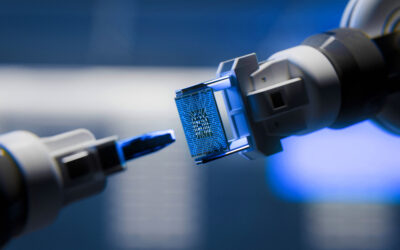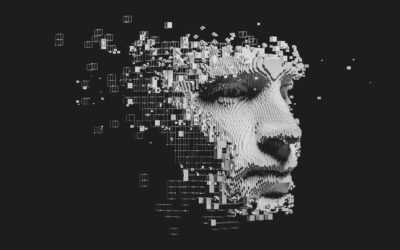From Data to Diagnosis: How RAG is Shaping the Future of Healthcare
From Data to Diagnosis: How RAG is Shaping the Future of Healthcare

-
Discover
-
Featured
In an era where data is considered the new oil, the healthcare industry is sitting on a treasure trove. Patient records, clinical trials, research papers, and real-time health monitoring data collectively form an enormous and ever-growing repository of information.
The challenge lies in bringing this data into play to improve patient outcomes, enhance operational efficiency, and drive medical innovation. This is where Retrieval-Augmented Generation (RAG) steps in, offering a transformative approach to data utilization in healthcare. This powerful technology is poised to revolutionize how we deliver, manage, and experience healthcare. Let’s explore how RAG can reshape the healthcare landscape.
What is Retrieval-Augmented Generation?
Retrieval-augmented generation (RAG) is an AI framework that enhances the output of large language models (LLMs) by blending their capabilities with real-time insights from trusted knowledge bases. Instead of relying solely on the data these models were trained on, RAG performs an initial retrieval step to fetch pertinent documents or data fragments. It then uses a generative model to produce accurate and contextually rich responses.
This extends the already powerful capabilities of LLMs to specific domains or an organization’s internal knowledge base, all without the need to retrain the model. It is a cost-effective approach to improving LLM output so it remains relevant, accurate, and useful in various contexts.
RAG’s Impact on Healthcare
Enhancing Clinical Decision-Making
Clinicians are often inundated with massive volumes of patient data, including electronic health records (EHRs), lab results, imaging studies, and clinical notes. Sifting through this data manually to find critical information is not only time-consuming but also prone to human error. RAG can alleviate this burden by quickly retrieving relevant patient data and generating concise summaries, helping clinicians make informed decisions faster.
For example, if a doctor needs to review a patient’s history of medications, allergies, and lab results to decide on a treatment plan, a RAG system can pull all pertinent information and present it in a clear, digestible format, highlighting key details and trends.
Empowering Personalized Medicine
Personalized medicine aims to tailor treatments to individual patients based on their unique genetic makeup, lifestyle, and health history. Achieving this requires integrating and analyzing diverse data sources, from genomic sequences to wearable device data. RAG can synthesize this multifaceted information to provide personalized treatment recommendations, predict disease risks, and monitor patient progress in real-time.
By leveraging RAG, healthcare providers can move from a one-size-fits-all approach to a more individualized care strategy, potentially improving outcomes and reducing adverse reactions to treatments.
Streamlining Administrative Processes
Beyond direct patient care, the healthcare industry also deals with extensive administrative tasks, including insurance claims, patient scheduling, and compliance reporting. RAG can automate and optimize these processes by extracting relevant information from unstructured data sources, filling out forms, and generating reports, thereby reducing administrative burdens and freeing up valuable time for healthcare professionals to focus on patient care.
Accelerating Medical Research
Medical research is a data-intensive field that requires the assimilation of information from numerous studies, clinical trials, and scientific literature. RAG can assist researchers by retrieving relevant studies, summarizing findings, and even generating hypotheses based on existing data. This can significantly speed up the research process, facilitate knowledge discovery, and promote collaboration across research institutions.
Bridging Language Barriers
In multilingual and multicultural settings, language barriers can impede effective communication between healthcare providers and patients. RAG can support real-time translation and interpretation of medical information, ensuring that patients receive accurate and understandable information about their conditions and treatment options. This can enhance patient engagement, compliance, and overall satisfaction.
Power of RAG: A Client Success Story
To illustrate the real-world impact of RAG, let’s consider a brief case study from one of our clients, a pioneering healthcare AI startup.
Our Client
Our client specializes in extracting critical information from patient data to provide actionable clinical insights. They had vast amounts of patient information in formats such as PDF, DOC, and DOCX. They needed a robust web application to present this information effectively to clinicians.
Our Solution
We developed a web application leveraging RAG technology to parse and extract data from various document formats, answer clinicians’ questions with precise citations, and maintain chat context for follow-up inquiries. This solution, deployed in a scalable and secure environment, enabled our client to transform their data into actionable insights seamlessly and efficiently.
The Future Of Healthcare
The future of healthcare lies in the smart integration of advanced technologies like RAG. This is not just about keeping up with the times but about leading the charge towards a more efficient, effective, and patient-centric healthcare system.
If you are a healthcare provider or an AI innovator looking to unlock the true potential of your data, we invite you to explore the possibilities with us. Contact us to see how we can tailor a solution that meets your unique needs and drives your vision forward.
Talk with us
EX Squared is a creative technology agency that creates digital products for real human beings.
Talk with us
EX Squared is a creative technology agency that creates digital products for real human beings.




